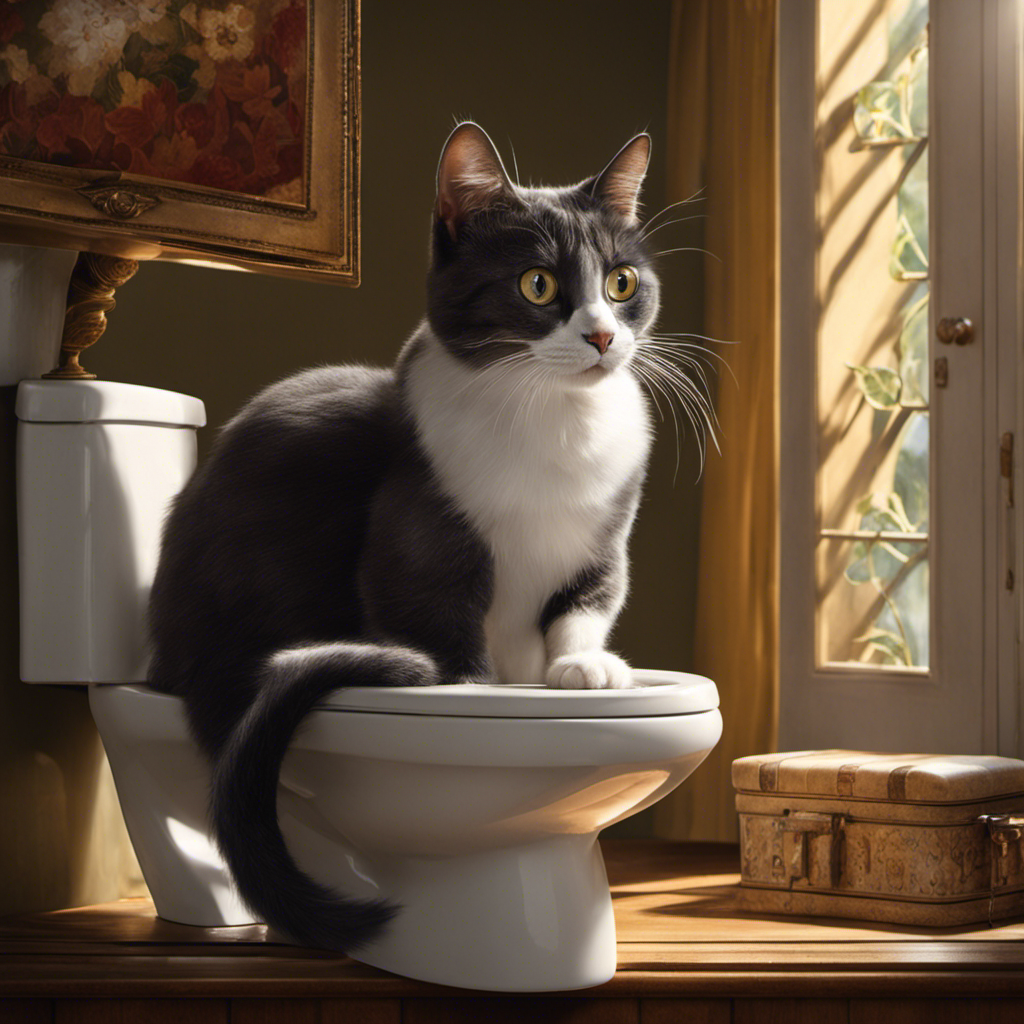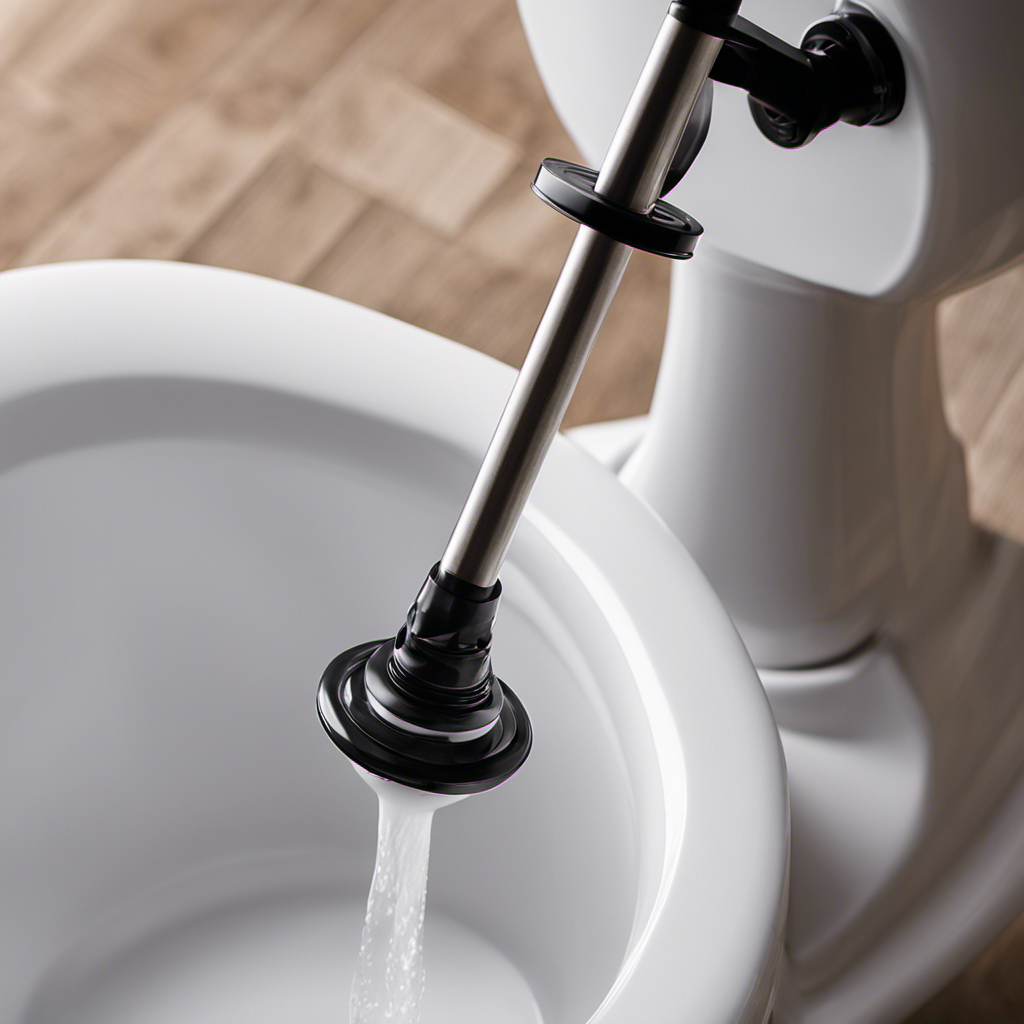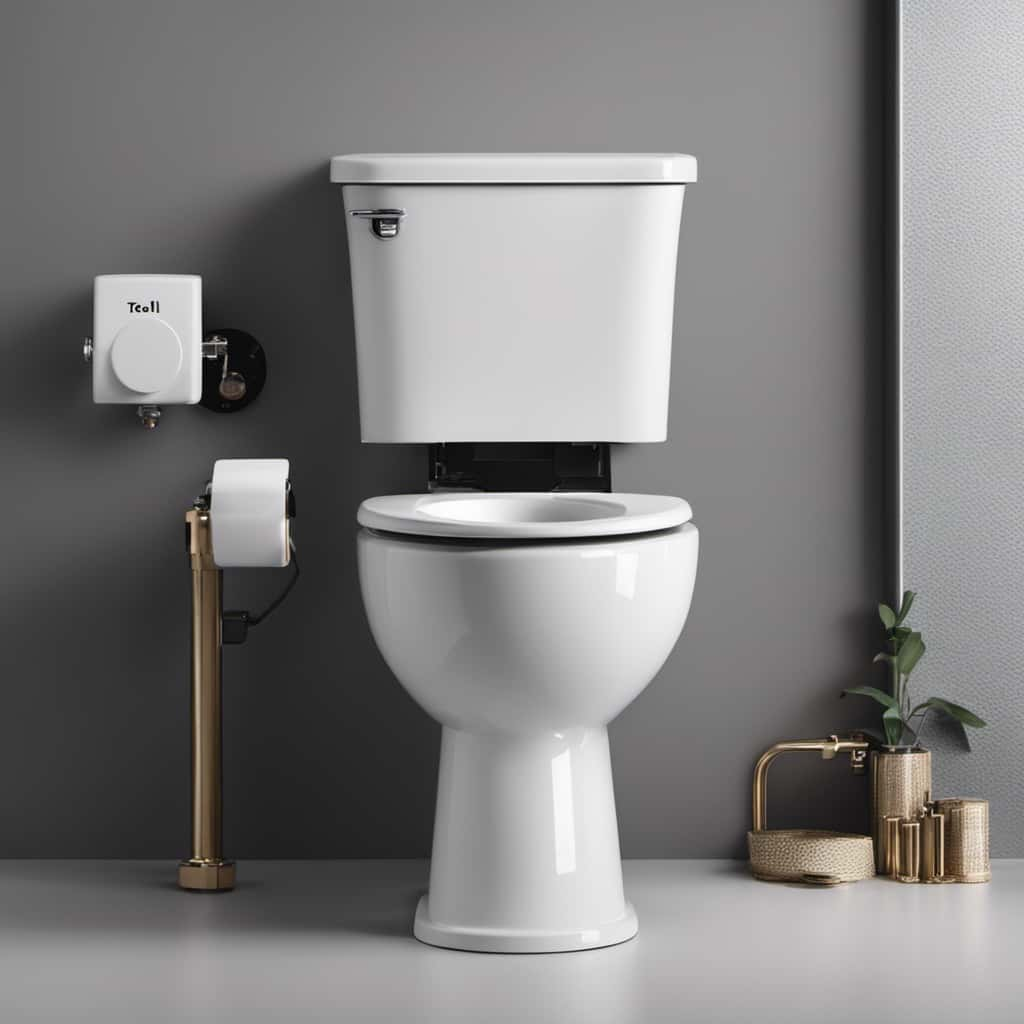Oh great, another mystery to solve in the world of plumbing.
So, you’re probably wondering, why is my toilet water black? Well, fear not, my fellow toilet owners, for I am here to shed some light on this dark situation.
In this article, we’ll explore the possible causes of black toilet water, uncover common plumbing issues that lead to this peculiar phenomenon, discuss the health and safety concerns that come with it, and of course, provide you with steps to diagnose and resolve this unsettling problem.
Plus, we’ll share preventive measures to ensure you never have to face the darkness again.
So, let’s dive in and get to the bottom of this mysterious black water, shall we?
Key Takeaways
- Black toilet water can be caused by a buildup of minerals in the plumbing system, which can affect water quality and cleanliness.
- Common plumbing issues such as blocked sewer lines, corroded pipes, and mold or mildew growth can also lead to black water.
- Black toilet water can pose health and safety concerns, including bacterial contamination and respiratory problems.
- To diagnose and resolve the issue, it is important to seek professional assistance and avoid DIY solutions. Regular plumbing maintenance and preventive measures can help avoid black toilet water.
Possible Causes of Black Toilet Water
One possible cause of your black toilet water could be a buildup of minerals in your plumbing system. Over time, minerals such as iron, manganese, and calcium can accumulate in the pipes, leading to potential contaminants in your water supply.
These minerals can come from various sources, including the ground, well water, or even the water treatment process. When these minerals reach a certain concentration, they can cause discoloration in the water, turning it black. This buildup can also negatively impact the water quality, affecting its taste, odor, and overall cleanliness.
It is important to address this issue promptly to ensure the safety and quality of your water supply.
Common Plumbing Issues Leading to Black Water
If you notice black water in your toilet, it could be caused by common plumbing issues. Black water contamination can be a distressing problem, but understanding the underlying causes can help you address the issue effectively. Regular plumbing maintenance is crucial to prevent black water from occurring. Here are some common plumbing issues that can lead to black water:
| Plumbing Issue | Description |
|---|---|
| Blocked Sewer Line | A blocked sewer line can cause wastewater to back up into your toilet, resulting in black water. This can be caused by tree root intrusion, debris buildup, or collapsed pipes. |
| Corroded Pipes | Corroded pipes can contaminate the water with rust particles, giving it a black appearance. This can occur due to age, poor water quality, or chemical reactions. |
| Mold or Mildew Growth | Excessive moisture in the plumbing system can promote the growth of mold or mildew, which can give the water a black or dark green color. This can happen in poorly ventilated areas or with stagnant water. |
To maintain a healthy and clean plumbing system, regular inspections, cleaning, and repairs are essential. If you notice black water in your toilet, it is advisable to contact a professional plumber to identify and resolve the underlying issue promptly.
Health and Safety Concerns With Black Toilet Water
Regular inspections and prompt professional assistance are crucial to addressing health and safety concerns associated with black toilet water. Neglecting this issue can lead to serious health risks and potential damage to your plumbing system. Here are four reasons why you should take immediate action:
-
Bacterial contamination: Black water in your toilet can indicate the presence of harmful bacteria, such as E.coli or salmonella. These can cause severe gastrointestinal illnesses and even be life-threatening.
-
Mold and mildew growth: The dark color of the water may be due to the growth of mold and mildew inside the pipes. Breathing in the spores released by these fungi can trigger respiratory problems, especially for those with allergies or asthma.
-
Sewer line blockage: Black water could be a sign of a blockage in the sewer line, leading to sewage backup in your home. This not only poses health risks but also requires expensive repairs.
-
Cleaning methods: It is essential to use proper cleaning methods when dealing with black toilet water. Avoid using harsh chemicals that can further damage your plumbing and opt for eco-friendly products that effectively eliminate bacteria and mold.
Don’t ignore black toilet water as it can have serious health implications. Seek professional help and take appropriate measures to ensure the safety of your household.
Steps to Diagnose and Resolve Black Water in the Toilet
Seeking professional assistance is crucial for diagnosing and resolving the issue of black water in your toilet. Toilet water discoloration can be caused by various factors, including mineral deposits, bacterial growth, or issues with your plumbing system.
To identify the root cause of the problem, a trained plumber will conduct a thorough inspection of your toilet and plumbing lines. They may need to perform tests and use specialized equipment to determine the exact cause.
Once the cause is identified, the plumber will recommend the appropriate solution, which may include cleaning the toilet thoroughly, replacing faulty parts, or repairing the plumbing system.
DIY solutions for black water are not recommended as they may not address the underlying issue and could potentially cause further damage. It is best to leave this task to the professionals to ensure a proper diagnosis and resolution.
Preventive Measures to Avoid Black Toilet Water
Taking preventative measures can help you avoid the issue of black water in your toilet. Here are four steps you can take to ensure clean and clear toilet water:
-
Install a water filtration system: Investing in a high-quality water filtration system can remove impurities and contaminants from your water supply, reducing the chances of black water in your toilet.
-
Regular plumbing maintenance: Schedule routine inspections and maintenance for your plumbing system. This will help identify and fix any issues before they escalate and cause black water problems.
-
Avoid flushing non-flushable items: Flushing items like wipes, cotton balls, or feminine products can clog your pipes and lead to sewage backup, resulting in black water in your toilet.
-
Use proper cleaning products: Avoid using harsh chemicals or cleaners that can damage your plumbing system and potentially cause black water issues. Opt for eco-friendly and septic-safe cleaning products instead.
Frequently Asked Questions
Can Black Toilet Water Be a Sign of a Serious Health Issue?
Black toilet water can indicate a serious health problem. Possible causes include bleeding in the gastrointestinal tract, ingestion of certain medications or foods, or even a fungal or bacterial infection. Consult a healthcare professional for proper diagnosis and treatment.
Are There Any Natural Remedies to Remove Black Stains in Toilet Water?
There are natural remedies to remove black stains in toilet water, such as using vinegar or baking soda. To prevent black stains, regularly clean and disinfect the toilet, and avoid using harsh chemical cleaners.
Can Black Toilet Water Be Caused by Using Certain Cleaning Products?
Yes, certain cleaning products can cause black toilet water. I made the mistake of using a strong bleach, which reacted with mineral deposits in the pipes, resulting in discolored water.
Is It Safe to Use a Toilet With Black Water if It Has Been Flushed Multiple Times?
It is not safe to use a toilet with black water, even if it has been flushed multiple times. The change in toilet water color indicates potential dangers, such as sewage backup or pipe issues.
Can Black Toilet Water Affect the Quality of Tap Water in the House?
Black toilet water can contaminate tap water, posing health risks. It’s crucial to address the issue promptly to prevent further contamination. Don’t ignore the warning signs; seek professional help to ensure the safety of your household water supply.
Conclusion
As I stand here, staring into the abyss of my black toilet water, I am reminded of life’s unexpected twists and turns. Just as the murky depths of my toilet hold hidden mysteries, so too does the journey of our lives.
We must be vigilant in understanding the causes of this darkness, both literal and metaphorical. By addressing common plumbing issues and taking preventive measures, we can navigate the treacherous waters and emerge stronger, wiser, and with a renewed appreciation for the light that shines through even the darkest of times.









